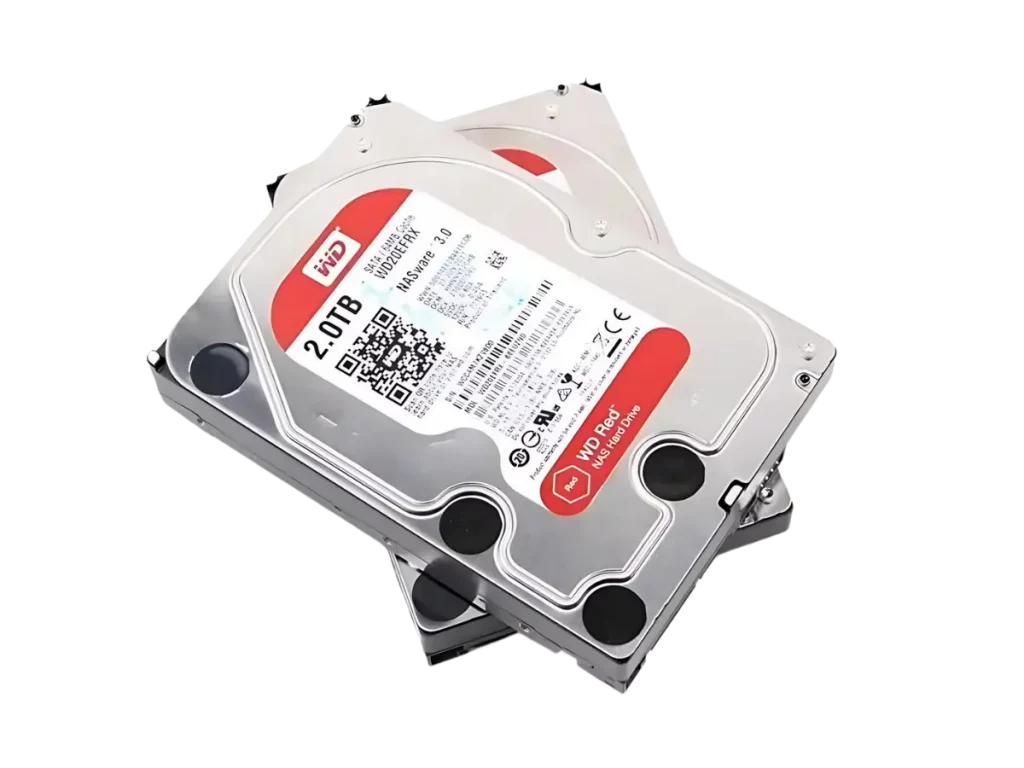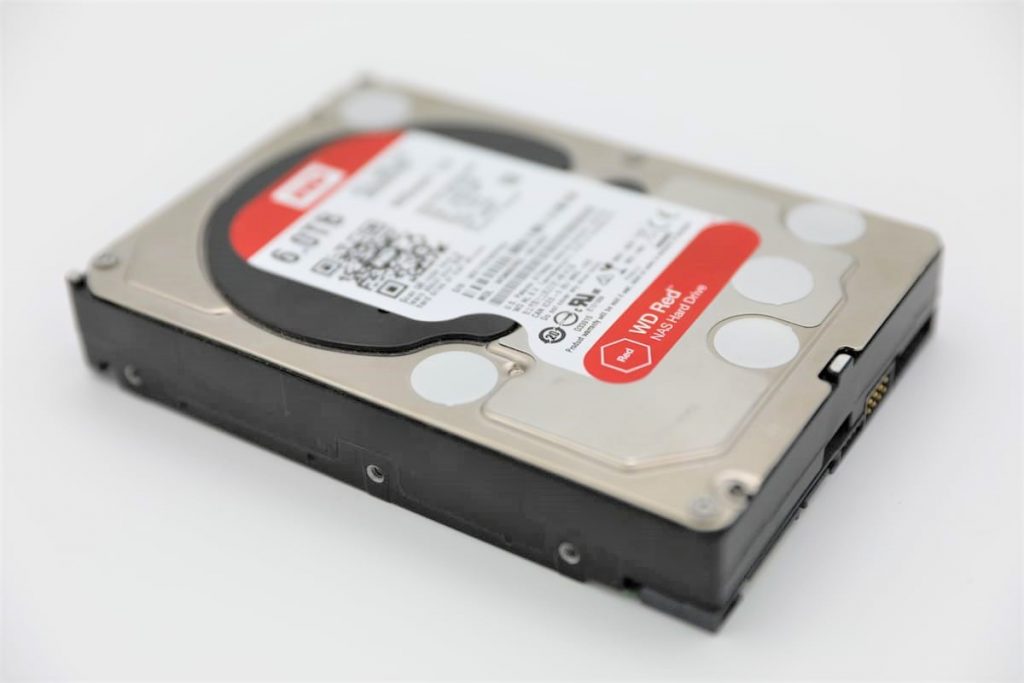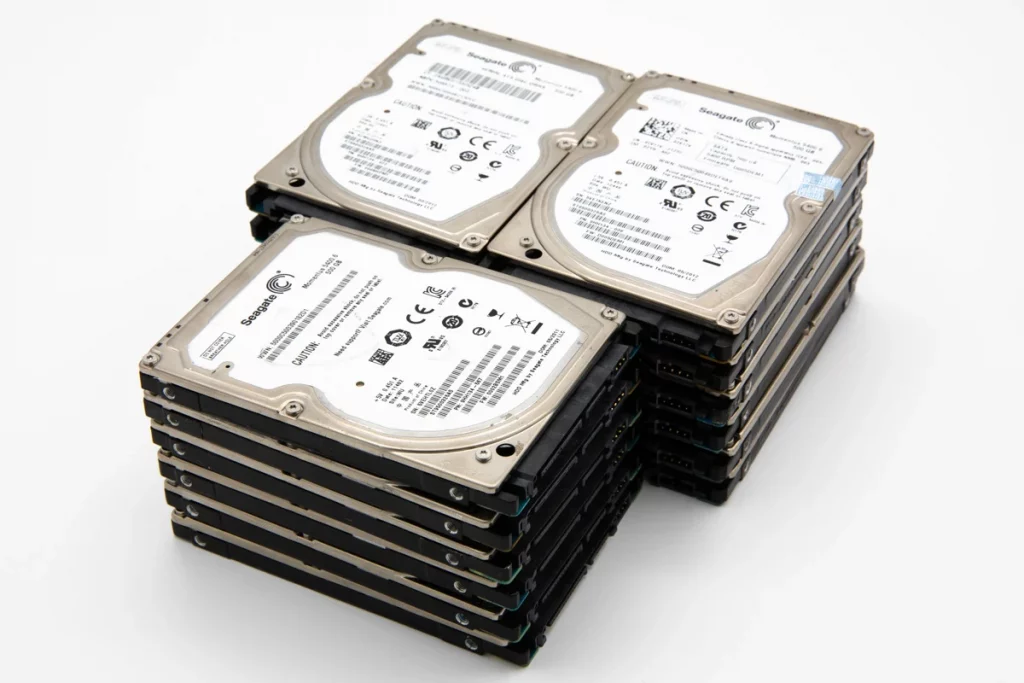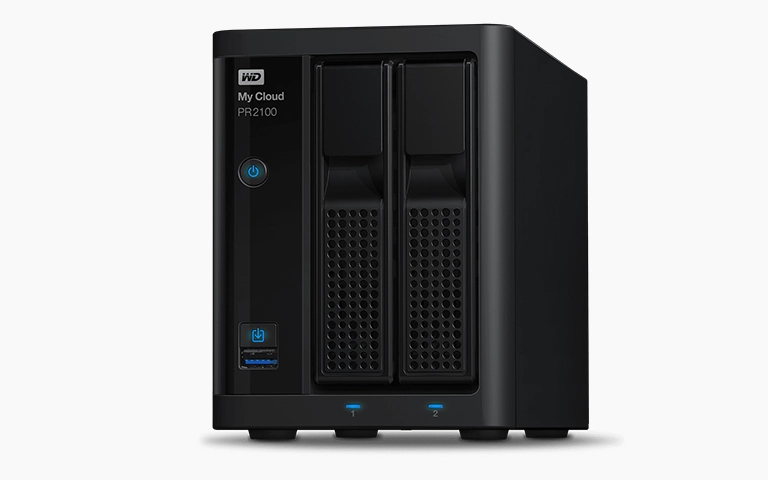The amount of data processed in the world increases with each day. It is regularly operated by users to perform routine procedures and requires extensive, high-capacity storage that can function accurately and handle user requests for specific tasks. One of the best solutions for this matter is Network Attached Storage.
What is NAS?
A Network Attached Storage is a device with a specific array connected to a network (mostly local), optimized for storage with additional features. It supports operations according to specific accepted network protocols.
NAS provides a number of advantages, including reliability, ease of access, and simplicity of management. It is designed for both home users and employees in small offices as well as larger commercial environments.
NAS systems contain one or more hard drives combined into RAID arrays and can recover missing data if one of the storage elements fails. However, not every hard drive can be used when installing a NAS. Therefore, using any high-capacity hard drive is not the best option when working with NAS.
Hard Drive for Network Attached Storage
When choosing a hard drive for NAS, users tend to pay attention to such characteristics as brand, model, storage capacity, read and write speed, and connection type. However, ensuring that the drive is specialized for NAS is also essential.
There is a significant difference between the load experienced by a hard drive when functioning in a personal computer and NAS.
The internal drive in a user’s computer can only read and write for a couple of hours, whereas a NAS drive can do so for weeks or even longer.
Not every hard drive can withstand this kind of workload for long periods.

This is why users must choose a suitable hard drive for storage. There are also more details when considering a drive for Network Attached Storage.
Difference Between NAS and Regular Hard Drive
As we mentioned before, the work environment inside a NAS is quite different from the typical computer environment. Packing numerous hard drives in a confined space not only achieves its intended function but also results in significant side effects.
| Feature | NAS Hard Drive | Regular Hard Drive |
|---|---|---|
| Purpose | NAS devices | General-purpose |
| Performance | Optimized for 24/7 use | Standard |
| Reliability | Longer MTBF, specialized features | Varies |
| Error Recovery | RAID support, data integrity | Basic |
| Workload | Multi-user environments | Single-user or desktop |
| Price | Slightly higher | Budget-friendly |
| Warranty | Longer (3-5 years typically) | Standard (1-3 years typically) |
| Noise/Vibration | Quieter, reduced vibration | Varies |
| Power Consumption | Energy-efficient, 24/7 optimized | Standard |
| Scalability | NAS setup scalability | Flexible, but not NAS-optimized |
Notably, this setup causes increased vibration from multiple drives operating at the same time and a substantial rise in temperature due to the heat emitted by each drive.
NAS hard drives typically have anti-vibration technologies and generate significantly less heat than conventional hard drives due to slightly lower spindle speeds and reduced noise levels produced when searching for the required data.

In addition, NAS disk drives are designed with specialized firmware created for use in a Redundant Array of Independent Disks.
While the NAS sees all installed drives as a single storage pool, the RAID allows data to be distributed across multiple drives to evenly build a total load of disk elements and reduce the adverse side effects.
Software firmware on a standard magnetic hard drive will cause the device to continually try to recover some of the data if a sector on a given drive fails, which can lead to a temporary suspension of response.
On the other hand, a NAS HDD will not make such an attempt but will simply report an error so that the RAID controller can retrieve the necessary data from another hard drive that is part of the configuration.
Usage of Regular Drive on NAS
When choosing a drive for the NAS, a user may notice that the cost for a specialized device is way higher than for a regular one. The combined set of distinctive advantages causes the increased price of NAS drives.
Some people may save money by installing regular hard drives on NAS servers. With fortuitous circumstances, a user will get premium storage at a much lower price.
Although it is possible to use standard hard drives in NAS systems, there is a higher chance of them not handling all the operations and failing, severely damaging your system.
Hard drives that are specialized for NAS systems are more durable and reliable. We recommend investing more in your data storage system and ensuring its error-free performance.

Regardless of which drive you to decide to use your NAS system, it is essential to monitor its performance and make regular backups regularly. In another case, you may face a severe data loss situation.
Regardless of the failure scenario on your attached network storage, our company will gladly help you. For a consultation with our skilled team, call us at 866.990.8999 or fill out the request help form.
Frequently Asked Questions
Can you use a regular hard drive for NAS?
Yes, you can use a regular hard drive for NAS, but NAS-specific drives are recommended for better reliability and performance.
Are NAS hard drives slower?
NAS hard drives often prioritize reliability over speed, but their performance is optimized for network storage and can efficiently handle multiple users.
Can I use a normal HDD for NAS?
Yes, a normal HDD can be used for NAS, though it may not offer the same performance or durability as a drive designed specifically for NAS use.
Do NAS drives need to be the same size?
It’s best practice to use drives of the same size to maximize storage efficiency and avoid potential issues in RAID configurations.
Is it necessary to use NAS-specific drives?
While not strictly necessary, NAS-specific drives offer advantages in reliability, noise level, and power consumption, making them a better choice for 24/7 operations.
Related Blogs
